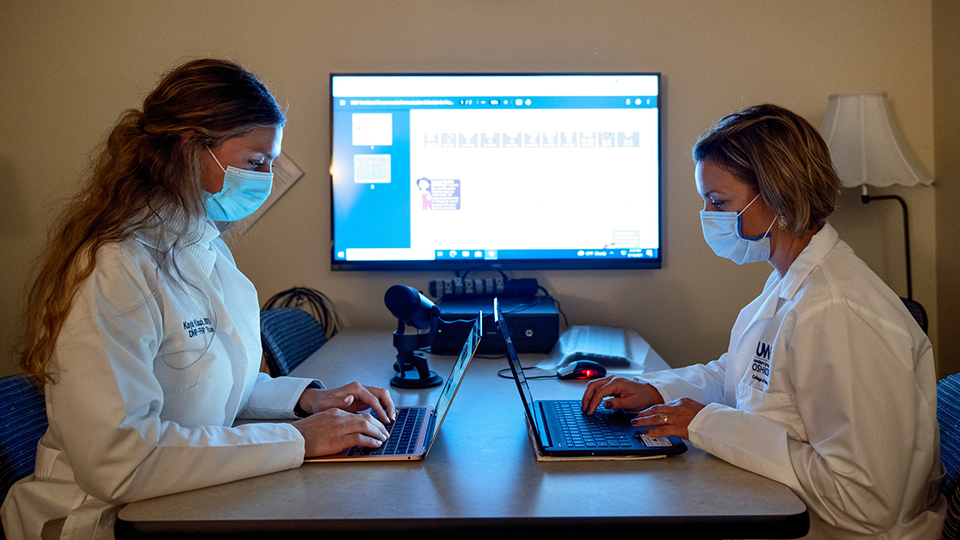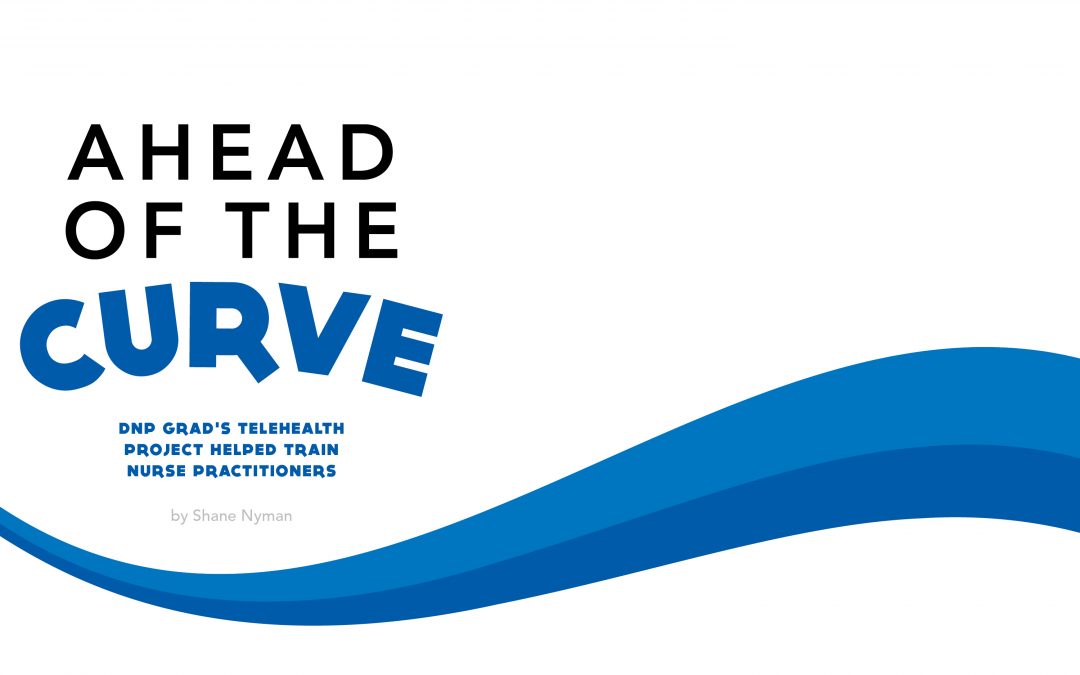When looking for a topic for her doctor of nursing practice scholarly project, Olivia Cassiday saw potential in telehealth. She knew it would be increasingly important for healthcare providers to offer telehealth services. She knew, to some extent, it’s the way of the future.
Then came the coronavirus pandemic. And, boy, was she right.
“It was crazy how people would ask me what my project was and I’d say I’m doing telehealth,” Cassiday said. “They’d say, ‘Oh, perfect timing.’
I say, ‘Yeah, I picked this back in 2019—who would have thought?'”
The Burlington native’s project more specifically focused on telehealth education for advanced practice registered nursing students. It’s a topic that, while important in 2019, became unquestionably more so in 2020 as COVID-19 spread worldwide and face-to-face care brought risks not seen in generations.
Cassiday, who was Olivia Leuck until getting married during graduate school, earned her doctor of nursing practice (DNP) degree from UW Oshkosh in 2021 and now works as a nurse practitioner in the pancreatic cancer program at the Medical College of Wisconsin in Wauwautosa.
Teaching telehealth
The scholarly project requirement for DNP students amounts to two-plus years of work.
Bonnie Nickasch, interim College of Nursing dean, pitched Cassiday the idea of putting together telehealth curriculum for nurse practitioner students at UWO. She then guided her along through the lengthy project, which included publishing a paper titled Exploring Telehealth in the Graduate Curriculum in Nurse Educator Journal in 2020. (Jason Mott, an associate professor in the CON who’d previously been published in the journal, also helped with the paper.)
Nickasch’s suggestion came in part because the DNP-family nurse practitioner (FNP) program follows recommendations from the National Organization of Nurse Practitioner Faculties (NONPF). It was around the time when Cassiday was looking for a topic that the NONPF announced support for adding telehealth education to nurse practitioner curriculum—healthcare organizations were looking to broaden access to care.
“Olivia seemed like the perfect fit for this project,” Nickasch said. “I knew her from undergraduate nursing school and knew she was detail-oriented, enjoyed teaching others and did well in the simulation lab.”
Through Microsoft Teams, Cassiday and UW Oshkosh FNP instructors would meet virtually with small groups of FNP students and present simulated patient health scenarios. Students were then asked to come up with potential diagnosis and treatment plans. Afterwards, the FNP instructors discussed with the students whether the diagnosis and plan were appropriate. Students were given a survey about the effectiveness of the experience.
“The survey collected data on what the students’ opinions were and then we used that to tweak the curriculum a little bit,” she said.

DNP-FNP students Kayla Klauk (left) and Jessica Grant simulate a telehealth conversation on the Oshkosh campus.
Clinical hours
As the pandemic continued, Cassiday ramped up the number of simulations in order to get more of the FNP students these important-as-ever skills. Many students also were pulled from their clinical placements—a situation unexpectedly remedied by these telehealth simulations.
“I had the great opportunity of not only having this benefit my project, but so many students were out of clinical placement sites that I was able to provide my class and the class above mine actual clinical hours,” Cassiday said. “It definitely couldn’t have come at a more perfect time.”
To help students get as much training as possible, a handful of CON faculty members volunteered to put on additional telehealth sessions with Cassiday. Then, when clinicians were able to return to their placements, they were equipped with much-needed skills as the pandemic continued.
“Olivia learned so much during this project, but what is really exciting is that she assisted in training 28 FNP students who have now graduated and are working on the frontlines as the pandemic heats up again,” Nickasch said. “Additionally, the other 30 FNP students she trained are now entering their final year of practicum and are equipped to work through the pandemic during their fall 2021 clinical.
“So just in this short amount of time, Olivia has been able to impact 58 new or up-and-coming family nurse practitioners who either are now or soon will be able to take care of our communities in a time of need.”
Learn more:

